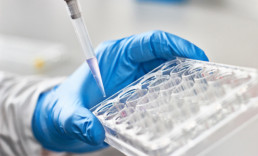WATER TESTS EXPLAINED
Water samples are tested in our laboratory using several methods, depending on the physical and chemical properties to be determined.
Total Hardness
The sum of permanent hardness and temporary hardness. Our recommended maximum total hardness no more than 60 ppm.
This is determined by titration with EDTA solution and an indicator.

Temporary Hardness
The hardness caused by presence of Calcium and / or Magnesium Bicarbonates.
- For sites with Coffee machines you would typically look for a Temporary harness of around 80ppm. Check with your Coffee provider for best results.
- For sites with Steam ovens you will need a Temporary hardness lower than 40ppm.
- For sites with Glass washers or Ice machines you will need a Temporary hardness lower than 20ppm
- Determined by titration using dilute Sulphuric Acid and Bromcresol-Green-Methyl-Red indicator.
Permanent Hardness
Hardness caused by metal sulphates, eg: Magnesium Sulphate and Calcium Sulphate, as well as the only very slightly soluble Calcium and Magnesium Carbonates.
- Determined by the equation:
Permanent hardness = Total Hardness – Temporary Hardness

